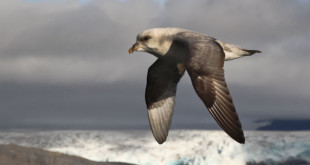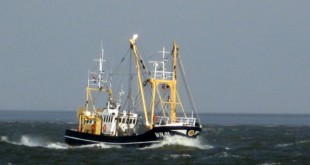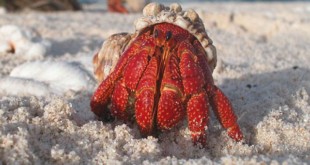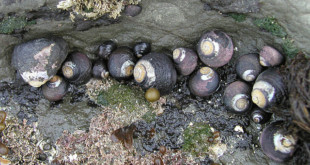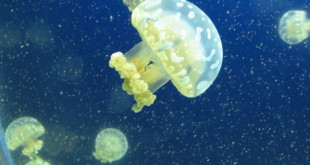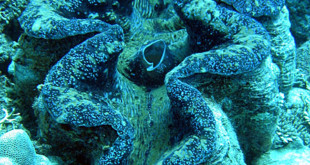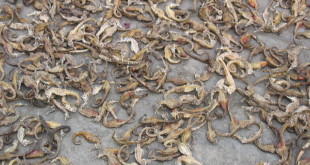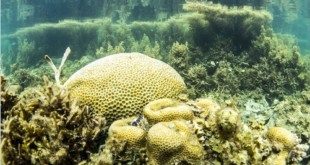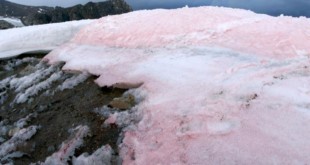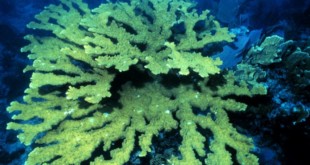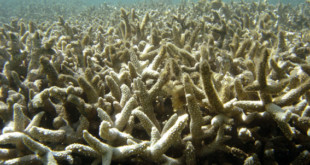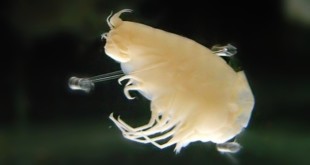Plastic dumped into the seas around the UK is carried to the Arctic within two years, scientists have revealed, where it does “extreme harm” to the fragile polar environment. Previous research estimated that at least 1tn pieces of plastic had been frozen into the Arctic ice over past decades, making …
July, 2016
-
5 July
EU bans deep sea trawling
Two and a half years after the European Parliament’s surprise refusal, the European institutions on Thursday (30 June) finally agreed to ban trawler fishing at depths of more than 800 metres. It took four years of intense negotiations from the European Commission’s initial proposal in July 2012, but a ban …
June, 2016
-
30 June
Thanks to CO2 emissions, the smell of the sea is changing
Changes to ocean pH mean that some organisms struggle to make shells. Now, the ability to detect crucial chemical signals is also being altered for some species. It has been suggested the acidic water affects these animals’ (and more besides) “sense of smell”. What this really means is that they …
-
29 June
Ocean acidification affects predator-prey response
Ocean acidification makes it harder for sea snails to escape from their sea star predators, according to a study from the University of California, Davis. The findings, published in the journal Proceedings of The Royal Society B, suggest that by disturbing predator-prey interactions, ocean acidification could spur cascading consequences for …
-
29 June
Baby fish lose poisonous protectors in acidified oceans
A common close partnership which sees baby fish sheltering from predators among the poisonous tentacles of jellyfish will be harmed under predicted ocean acidification, a new University of Adelaide study has found. The researchers say that modification of this baby fish-jellyfish symbiotic relationship is likely to lead to higher mortality …
-
28 June
South China Sea reefs ‘decimated’ as giant clams harvested in bulk
Ornaments made from the shells of endangered giant clams, renowned in China for having auspicious powers and the luster of ivory, have become coveted luxuries, a trend which has wreaked havoc on the ecosystem of the South China Sea. China banned harvesting of giant clams last year but in the tiny …
-
23 June
8 million seahorses seized in Lima port
Authorities in Peru have seized more than 8 million specimens of dried seahorses destined for China from a container in Lima’s port of Callao. The seizure on June 7 of this protected species, valued at $3.9 million on the black market, is the largest in Peru’s history. The haul brings Peru’s …
-
23 June
Seaweed threatens Pacific coral reefs
Regulating overfishing could protect Pacific coral reefs from strangulation by seaweed, according to new findings by a University of Queensland scientist. “Seaweeds tend to bloom when too many herbivorous fish are fished heavily or when agricultural fertilizers pollute rivers that run into the sea….
-
22 June
Cosmopolitan snow algae accelerate the melting of Arctic glaciers
The role of red pigmented snow algae in melting Arctic glaciers has been strongly underestimated, suggests a study to be published in NATURE Communications on June 22. White areas covered with snow and ice reflect sunlight; the effect is called albedo. It has been known for quite some time that …
-
22 June
‘Coral zombies’ may spell doom for coral reefs around world
Scientists have known for a while that coral reefs around the world are dying, and in a worst-case scenario they were counting on large, healthy-looking corals to repopulate. But a new study presented at the 13th International Coral Reef Symposium in Honolulu today shows that these seemingly healthy colonies are “Coral …
-
21 June
Heat sickens corals in global bleaching event
Death is only one possible outcome from coral bleaching caused by rising sea temperatures due to global warming. Australian scientists report that many surviving corals affected by mass bleaching from high sea temperatures on the northern Great Barrier Reef are the sickest they have ever seen…
-
21 June
Man-made pollutants found in Earth’s deepest ocean trenches
Toxic chemicals are accumulating in marine creatures in Earth’s deepest oceanic trenches, the first measurements of organic pollutants in these regions have revealed. “We often think deep-sea trenches are remote and pristine, untouched by humans,” says Alan Jamieson, a deep-ocean researcher at the University of Aberdeen, UK. But Jamieson and his …
 Ocean Sentry
Ocean Sentry
